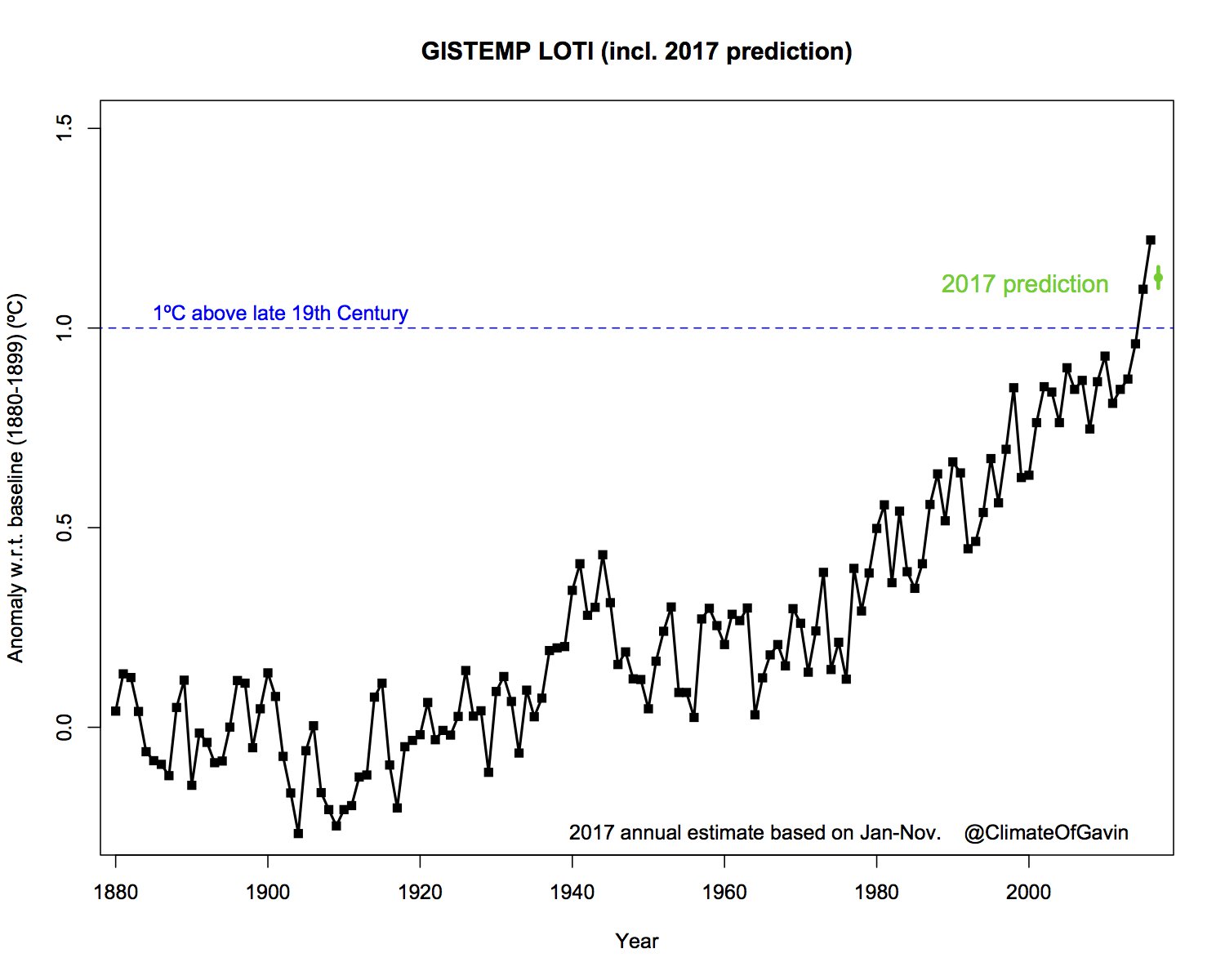It is the COLDEST! What happened to Global Warming???
As frigid air pours down from the Arctic, 2018 New Years celebrations across the northern and eastern US could indeed be the COLDEST on record. Subzero temperatures and wind chills as low as -40°F have been observed over the past few days in the Midwest and Northeast. With such cold conditions in place, some people are wondering, “Where’s global warming?”
Well, it hasn’t gone anywhere. Taking a look at current temperature anomalies, or departures from average, it’s evident that Canada and the eastern US is experiencing significantly below average temperatures; however, this is not simultaneously the case in the rest of the world. In fact, the globally averaged temperature is about 0.5°C above normal.
Current global temperature anomaly map courtesy of Karsten Haustein, www.karstenhaustein.com/climate.
If we look at month-to-date temperature anomalies, the cold departures over North America are significantly reduced, and the red areas (regions of warmer than normal temperatures) dominate.
Month-to-date global temperature anomaly map courtesy of Karsten Haustein, www.karstenhaustein.com/climate.
What does this tell us? Just because one region of the world is experiencing cold temperatures doesn’t mean the rest of the world is. In fact, 2017 is estimated to be the second warmest year on record, falling only behind 2016, which was amplified by a strong El Niño.
“2017 is estimated to be the second warmest year on record.”
Annual global temperature anomalies courtesy of Gavin Schmidt @ClimateOfGavin.
Looking into the future, cold outbreaks will still occur in a warming world. What will change is the severity and duration of the cold. As the earth warms, cold air outbreaks from Canada and the Arctic will be less frigid and last for a shorter amount of time. Fewer cold records will be broken during the winter as well. If you find yourself counting the days until spring, this might sound like good news, but it doesn’t bode well for ice skaters, hockey players, and ice fishers.
At the end of the day, global warming is determined by trends in global temperatures, not by what’s happening over one specific area.



